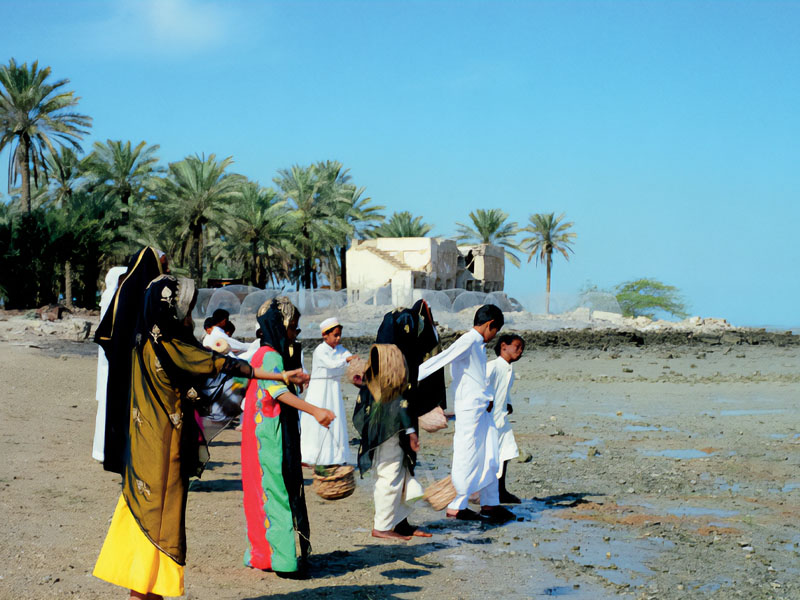RAMADAN RITUALS IN BAHRAIN
Issue 21

Many Arab scholars and authors have written about Ramadan and Eid, especially in history books, anthologies of poetry and literature. In Shaban, the month before Ramadan, markets start to get busy as people prepare for Ramadan by stocking up on food, sweets and drinks. People gather on the hills and beaches to watch for the crescent moon that signals the start of Ramadan; Bahrainis call this special night ‘Istihlal’. People who sight the moon go and bear witness to religious authorities at mosques or at offices.

When the crescent moon of Ramadan is sighted, several cannon shots are fired, the streets are lit with lanterns, and religious rituals are held throughout the day and night. Men spend most of their time at the mosques, while women visit their neighbors’’ homes in the morning and then busy themselves preparing food for fast-breaking.
Boys, most of whom are fasting, try to spend as much time playing as possible. Bahrainis visit the elderly at the beginning of the first week of the holy month. Bahrainis usually break their fasts with light food such as soup, dates and Arabic coffee, then men rush to the mosques to perform the Maghrib prayer. When the men return, families dine on traditional dishes such as harees (wheat porridge), tharid (bread layered with stew), luqaimat (dumplings in syrup), and makbous (rice with lamb).
People in Bahrain take a laxative of Senna herbs in preparation for the fatty foods eaten during Ramadan. People recite the Holy Quran and listen to Quran recitals at mosques, and they try to recite the entire holy book as many times as possible during the holy month. There are also readers who will recite for a reward. After reciting the entire Holy Quran at the mosque, a preacher delivers a religious sermon, and the wealthy donate food to the poor.
In the past, everyone fasted, even children who were not yet required to do so. Children would compete, showing their tongues to prove that they were fasting, (when the tongue is white rather than red, it indicates that the person is fasting).
Unfortunately, in present day Bahrain children no longer play the invasion game that they used to play in Ramadan. The game consisted of two teams armed with sticks or stingray tails. When one team attacks, the leader of the other team sings to encourage his team to fight back. In the second half of the month of Ramadan, children celebrate Qarqe’an night by carrying a sack and walking around in groups collecting nuts, sweets and money.
Mohammad Al Samira’i
Iraq







































































